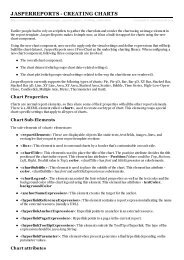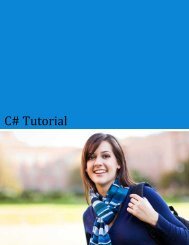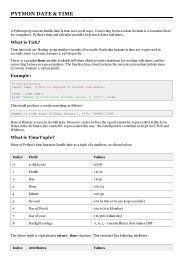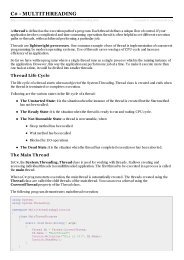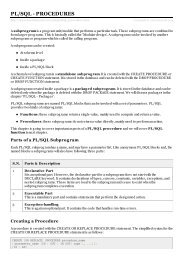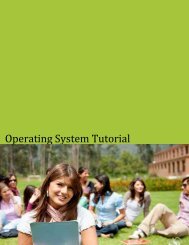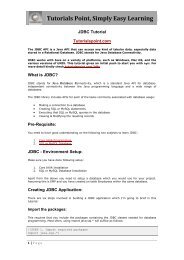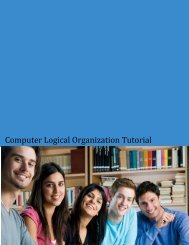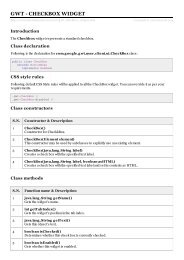download pascal tutorial (pdf - Tutorials Point
download pascal tutorial (pdf - Tutorials Point
download pascal tutorial (pdf - Tutorials Point
You also want an ePaper? Increase the reach of your titles
YUMPU automatically turns print PDFs into web optimized ePapers that Google loves.
Objects<br />
This section shows the concept of Objects under Object-Oriented Pascal:<br />
CHAPTER<br />
25<br />
We can imagine our universe made of different objects like sun, earth, moon,<br />
etc. Similarly, we can imagine our car made of different objects like wheel, steering, gear,<br />
etc. Same way, there are object-oriented programming concepts, which assume<br />
everything as an object and implement a software using different objects. In Pascal, there<br />
are two structural data types used to implement a real world object:<br />
<br />
<br />
Object types<br />
Class types<br />
Object-Oriented Concepts:<br />
Before we go in detail, let's define important Pascal terms related to Object-Oriented<br />
Pascal.<br />
<br />
<br />
<br />
<br />
<br />
Object: An Object is a special kind of record that contains fields like a record;<br />
however, unlike records, objects contain procedures and functions as part of the<br />
object. These procedures and functions are held as pointers to the methods<br />
associated with the object's type.<br />
Class: A Class is defined in almost the same way as an Object, but there is a<br />
difference in way they are created. The Class is allocated on the Heap of a<br />
program, whereas the Object is allocated on the Stack. It is a pointer to the<br />
object, not the object itself.<br />
Instantiation of a class: Instantiation means creating a variable of that class<br />
type. Since a class is just a pointer, when a variable of a class type is declared,<br />
there is memory allocated only for the pointer, not for the entire object. Only<br />
when it is instantiated using one of its constructors, memory is allocated for the<br />
object. Instances of a class are also called 'objects', but do not confuse them with<br />
Object Pascal Objects. In this <strong>tutorial</strong>, we will write 'Object' for Pascal Objects and<br />
'object' for the conceptual object or class instance.<br />
Member Variables: These are the variables defined inside a Class or an Object.<br />
Member Functions: These are the functions or procedures defined inside a Class<br />
or an Object and are used to access object data.<br />
TUTORIALS POINT<br />
Simply Easy Learning Page 142



